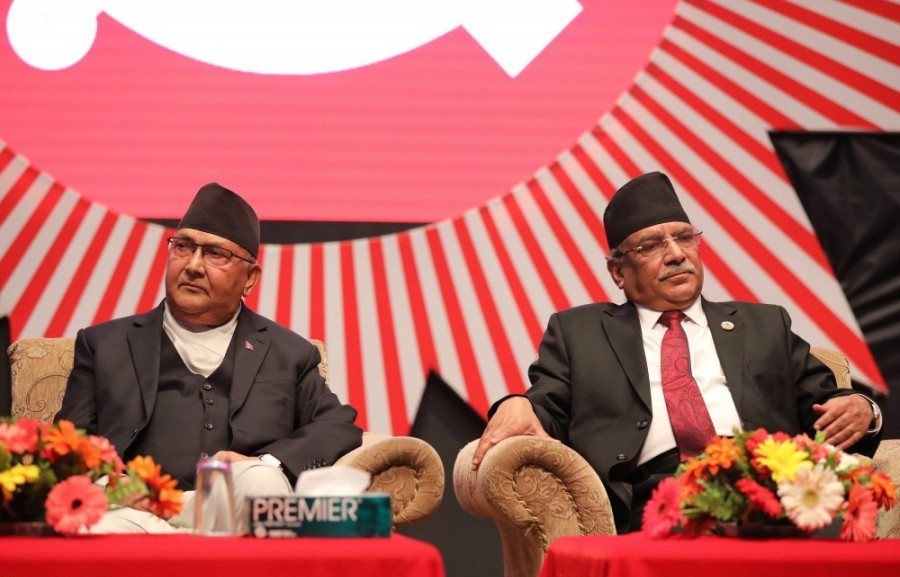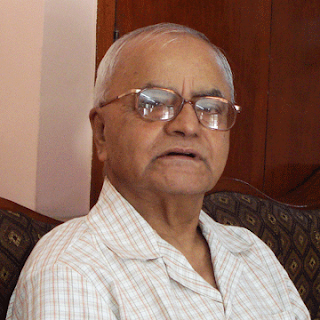Columns
Democracy in retreat
Top leaders of old parties lack public trust despite their successes in electoral arithmetic.
Lok Raj Baral
Democracy is in retreat all over the world. The widely acclaimed developed democracy of the United States is no longer ideal to emulate, nor do democracies in Europe continue to inspire others. In South Asia, democratic stability and its novelties are in peril as revered institutions like parliament, judiciary and government have been abused irrespective of which party is in power. India, which had been the great inspiration in the neighbourhood, has undermined its significance as well as rationality due to the excessive dominance of the ruling party whose religiously paranoid orientation is pervasive. Other national parties, too, are on decline due to their loosening grip on regional politics.
Nepal has its own distinct history of political development, with major parties of divergent backgrounds and initial anti-democratic indoctrination. However, such indoctrination has not adapted to the Nepali conditions compelling these parties, mostly “communists”, to remain relevant. But they had no alternatives but to accept the much-maligned parliamentary system of the Nepali variant. Thus, as with any other non-communist party, they have become systemic after going through the wilderness for some years.
Political parties are a necessary evil for democratic evolution since no alternative mechanism is discovered as yet. Although these parties were responsible for introducing democracy and freedom with the hope of creating a society based on social justice, these revolutions have not yet heralded radical transformations. Structurally, however, parties were responsible for making people sovereign as the constitution prepared by their representatives has ensured popular legitimacy and social justice. Yet, the parties have not made much progress even if they have been at the pinnacle of power for a long time. For, all parties are conflict-ridden, drawing much of their attention to internal management. Some new parties, like the Rastriya Swatantra Party, are “stuck in the muck” in less than a year of their inauguration. These new parties show their impatience in joining the government to the extent of harassing the coalition government headed by a prime minister whose own strength is weak.
People are fed up with the political parties perennially dominated by self-centred, egoistic leaders who are least prepared to set people-centric socio-economic agendas, with which their own renewal would have been credible. Nepali politics, unlike India, is still in a turbulent stage contrary to successful periodic elections. Nevertheless, election alone is not the basis of democratic governance if the parties fail to deliver. As a result, the popularity of “major” parties has waned in recent years, attracting the disdain of general people. Some read the anger of people as the signal to replace the existing political order, which, in the opinion of some opponents, has failed to deliver. They hope the regime will collapse when it is “given a shove”. Some retrogressive elements opposed to republicanism dream of a “return to the golden age” (monarchical era) as if it had transformed the country into inclusive prosperity.
Some blame the republic for begetting all sorts of maladies in the country. However, it is not the republic but the political leaders who rotate in power that have created a mess where politics is adrift and the capacity of governance has eroded. Populist slogans of all tested leaders are increasingly becoming irrelevant to the people as most of their promises made during elections and after are being questioned by way of mocking them. Thus, the top leaders of old parties lack public trust despite their successes in electoral arithmetic.
The failure of political leaders to govern effectively and democratically leads us to two scenarios. First, sooner or later, they would have to give grounds to their juniors whose performance capacity remains to be tested. Second, parties like the Nepali Congress (NC), the CPN-UML and the Maoist Centre would, in all probability, erode further due to simmering discontent within these parties. Such a situation will likely be developed within the NC as Deuba’s leadership has failed to inspire people. So is the case with UML’s Oli, despite his sharp-tongued defensive outbursts against his opponents. Most of his agendas were short of reality. Egoistic and self-centred as he is, Oli’s future role as that of Deuba is likely to be reduced.
The Maoist party is likely to become irrelevant to the changing dynamics. Comrade Prachanda’s third term as Prime Minister seems to have lost its direction and efficacy, defying his assertion that the third term in office needs to be meaningful for the transformation of the country. His track record so far has dimmed the prospect of being effective, as the coalition partners, particularly the NC, have failed to select his own ministerial team. Other smaller parties also quarrel over portfolios, putting the prime minister in a difficult situation. His time is being spent on trifles that distract him from the major agendas of the country.
The democratic retreat is also related to political instability and a lack of inclusive development. Stability without progress is meaningless as the performance of any government and institutional durability are the basis of stability, which has two sides: Systemic and governmental stability. If the constitution and the system continue, governmental instability does not harm much, though governmental efficiency and capacity to deliver reduce the risk of constitutional instability. In the given Nepali context, taking the provisions of the constitution, governments may come and go depending on the arithmetic in the House of Representatives or the leaders’ miscalculation of the political process. If leaders are too selfish to perpetuate their control over both parties and government, numbers in parliament alone do not guarantee the stability of the government. The collapse of the almost two-thirds majority commanded by the combined communist parties—CPN-UML and the Maoist Centre—demonstrated that leadership is crucial for putting the political order on track.
Democratic exercises in Nepal are not as alarming as we think they are. Inefficient and status quo parties are being challenged for their inability to govern, and some new beginnings are being made to put them on their toes or face extinction. Elections are held periodically to transform power democratically. Since the alternative to the existing order is regressive authoritarianism, which the country has already experienced, correcting the electoral system along with the greater realisation of parties’ leaders to inculcate a culture of accountability would ensure democratic stability and progress.




 8.26°C Kathmandu
8.26°C Kathmandu















